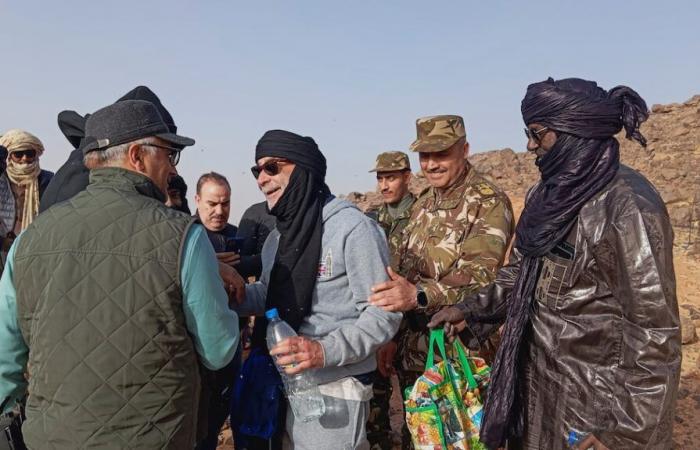The editorial staff of “Barlamane.com”
|
10:38 – January 22, 2025
The release of Gilbert Navarro, a Spanish national kidnapped on January 17 in Algeria, was confirmed on Monday January 20 by the Azawad Liberation Front (FLA), a rebel group operating in northern Mali. The conditions in which this announcement took place, as well as the role played by the regime of Abdelmadjid Tebboune, raise serious questions and fuel a climate of suspicion about the involvement of the Algerian state in this matter.
The FLA said Mr. Navarro, kidnapped in Algeria before being transported to Mali, was released “safe and sound.” However, the opacity surrounding this proclamation is worrying. Algeria has chosen not to disclose any precise information on the negotiations which led to the end of the captivity of the Spanish septuagenarian. No explanation was given on the involvement of the Algerian authorities in the discussions, nor even on the terms of the release. This lack of transparency raises burning questions, particularly in the context of Algerian relations with rebel groups in the Sahel, often described as terrorist militias.
Could Algeria, a hated actor in the Sahel region, have used this incident for diplomatic purposes, in particular to pose as a regional mediator while strengthening its positions with regard to its neighbors? The absence of any official declaration detailing Algiers’ involvement in the liberation process, coupled with the silence surrounding the terms of the negotiations, suggests a management of this crisis more focused on cyclical strategic interests than on real international cooperation.
-This vagueness around the role of Algiers is all the more suspicious since Algerian diplomacy, often accused of ambiguity in its relations with the death brigades in the Sahel, has everything to gain from maintaining gray areas in this affair. . The Algerian authorities seem to have avoided accountability for their role, leaving doubt to arise about the real reasons for their silence. In a context of diplomatic rivalry with Morocco, which is also concerned by security issues in the region, this equivocal management could well be a deliberate maneuver to avoid giving too many details on behind-the-scenes talks, or worse, on d possible agreements with armed groups that Algeria would indirectly support.
Although Madrid was informed of the release of its citizen, it did not make an official statement on the terms of the agreement or its own involvement in the negotiations. This non-communication is not trivial. It suggests a certain sidelining of Spain in this process or at least a minimization of its weight in a sensitive issue where the geopolitical stakes are particularly strong. This affair, says a fine connoisseur of Algerian affairs, is another example of the way in which the regime exploits humanitarian affairs for the purposes of political maneuvering, neglecting the need for transparency and accountability towards the international community.
Swiss






